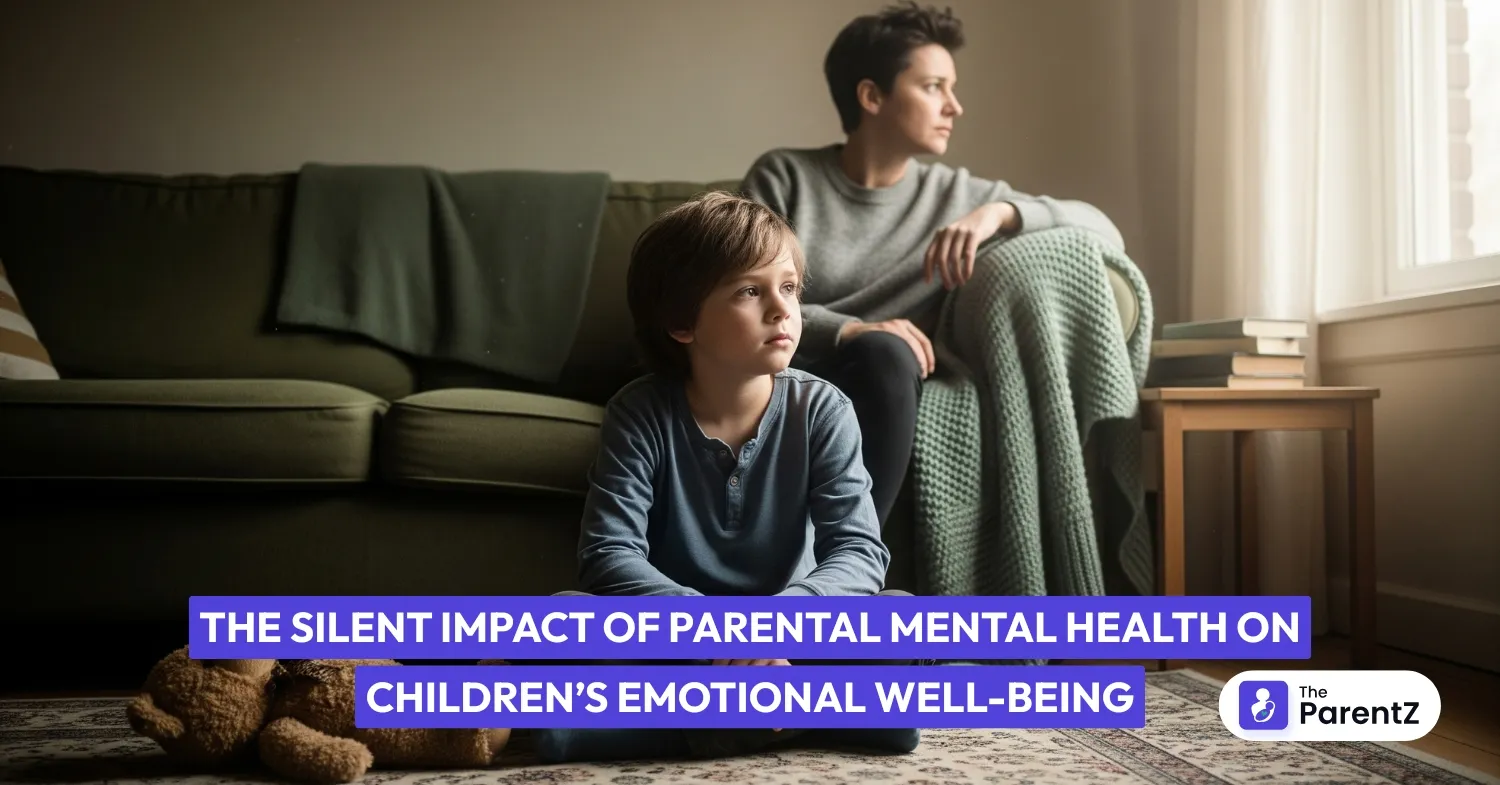You're having one of those days. The anxiety is sitting heavy in your chest, depression has made even getting dressed feel impossible, or maybe you're just running on empty after months of stress. Your child walks into the room asking for help with homework, and you snap. "Not now! Can't you see I'm busy?"
The look on their face breaks your heart instantly. But here's what most parents don't realize: that moment isn't just a bad day. It's part of a pattern that's quietly shaping your child's emotional world in ways you might never have imagined.
The Invisible Thread Between Your Mind and Theirs
Children are emotional detectives. They read our faces, listen to our tone, and feel our energy before we even speak. When we're struggling with mental health challenges (whether it's depression, anxiety, trauma, or chronic stress), our kids pick up on it, even when we think we're hiding it well.
Think about it this way: you're your child's first teacher about emotions. They learn how to handle feelings by watching how you handle yours. When you're overwhelmed, they absorb that tension. When you're disconnected due to depression, they feel that distance. When anxiety makes you overprotective or irritable, they internalize those reactions as normal.
This isn't about blame or guilt. It's about understanding that our mental health directly impacts our children's emotional development, whether we acknowledge it or not.
What This Really Looks Like in Daily Life
Let's get specific about how parental mental health shows up in children's lives:
When depression takes hold, you might find yourself emotionally unavailable. Your child comes home excited about their day, but you can barely muster a response. Over time, they learn that their feelings don't matter much, or they become the family cheerleader, desperately trying to make you happy.
With anxiety ruling the house, every small problem becomes a crisis. Your child spills juice, and your reaction is disproportionate. They start walking on eggshells, becoming hypervigilant about making mistakes. Some children develop their own anxiety, while others become people-pleasers who suppress their own needs.
During high-stress periods, you're short-tempered and easily frustrated. Your child's normal developmental behaviors, like testing boundaries or being loud, feel unbearable. They might start believing they're "too much" or learn to make themselves invisible.
If trauma affects your parenting, you might overreact to situations that remind you of your past, or you might emotionally shut down when your child needs comfort. Children often blame themselves for these reactions, thinking they did something wrong.
The Ripple Effects That Follow Them
The impact doesn't stop at childhood. Children who grow up with parents struggling with untreated mental health issues often carry these patterns into their own relationships and parenting styles.
They might struggle with emotional regulation because they never learned healthy coping skills. They may have difficulty trusting others or forming secure attachments. Some become overly responsible, carrying burdens that were never theirs to bear. Others might develop their own mental health challenges, continuing a cycle that spans generations.
But here's what's crucial to understand: none of this is inevitable, and recognizing these patterns is the first step toward breaking them.
Breaking the Silence, Creating Change
The most powerful thing you can do is acknowledge what's happening. Children benefit more from honesty than from pretense. This doesn't mean burdening them with adult problems, but it does mean age-appropriate explanations.
You might say, "Mommy is feeling sad today, but it's not because of anything you did. These feelings are something grown-ups sometimes have, and I'm working on feeling better."
- Prioritize your own mental health care: This isn't selfish; it's essential parenting. Therapy, medication when needed, support groups, or even regular conversations with trusted friends can make a significant difference. When you take care of your mental health, you're directly investing in your child's emotional future.
- Create emotional safety nets: Even on difficult days, establish small rituals that show your child they matter. A bedtime story, a special handshake, or five minutes of undivided attention can provide stability when everything else feels chaotic.
- Teach emotional vocabulary: Help your child name feelings and understand that all emotions are valid, even difficult ones. When you model this by naming your own emotions appropriately, you give them tools they'll use for life.
- Build your support network: Parenting while managing mental health challenges is incredibly difficult to do alone. Whether it's family, friends, other parents, or professional support, having people you can rely on creates a buffer for both you and your child.
Conclusion
Your mental health struggles don't make you a bad parent. They make you human. What matters most is your willingness to recognize their impact and take steps to create positive change. Children are remarkably resilient, and the relationship between parent and child can heal and strengthen over time.
Remember: seeking help for your mental health isn't just about you anymore. Every step you take toward better mental health creates space for your child to develop emotional resilience, healthy relationships, and their own path to wellbeing.






Be the first one to comment on this story.